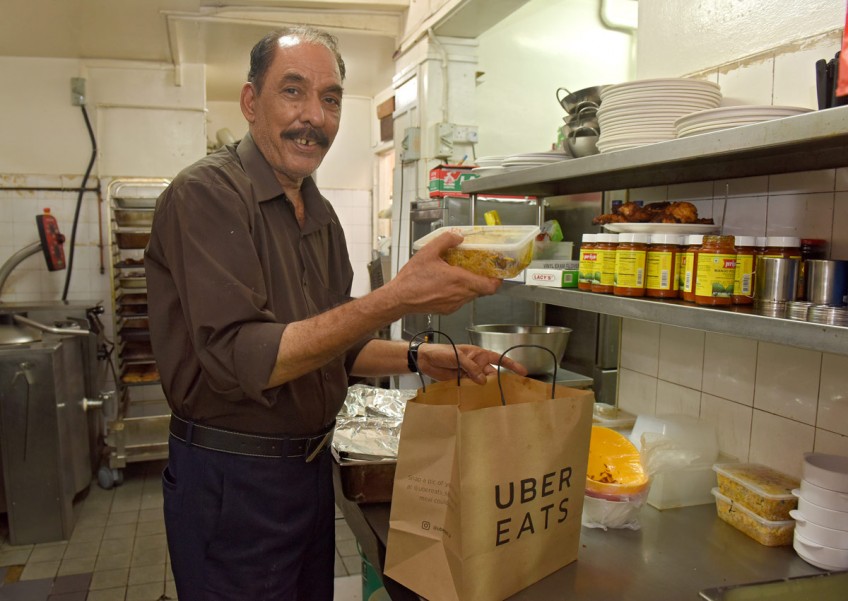Delivery sales drive up eateries' revenues

Food lovers here are lapping up home delivery services for meals despite Singapore's abundance of cheap and accessible food outlets.
Their appetites have been whetted by the lure of ordering in feasts ranging from Michelin-rated briyani to humbler fare such as fried chicken.
And it is all driving up sales for happy restaurateurs.
Some restaurants have seen revenues rise by 15 per cent or more after partnering food-delivery firms.
Mr Arif Salahuddin, founder of Michelin-rated Bismillah Biryani Restaurant, teamed up with food-delivery platforms such as UberEats and Foodpanda last September.
His revenue is up 17 per cent.
His daughter Zara, who spearheads the company's delivery business, said that within minutes of turning on the UberEats app last September, the restaurant had multiple orders, which surprised them as there was no marketing.
The boost to their sales prompted them to employ more staff and invest in larger ovens.
But Ms Salahuddin said that while 15 per cent to 20 per cent of revenue now comes from delivery, they are still hesitant to rely on it as delivery sales can fluctuate daily, based on factors such as the number of riders and weather.
Ms Lau Jiaxin, assistant marketing manager for fast-food chain Texas Chicken, said the firm was initially worried about "cannibalisation", as people who order delivery would not dine at its outlets.
However, after the firm put all 13 outlets on the Foodpanda platform, sales jumped 8 per cent, with about 10,000 delivery orders a month.
Nevertheless, Ms Lau noted that the company is concerned about the commissions charged by food-delivery partners - a refrain repeated by several restaurants.
Restaurants declined to disclose the commissions paid, owing to non-disclosure deals, but The Straits Times understands that these can range from 20 per cent to 50 per cent, depending on sales and the number of outlets.
Mr Andrei Soen, founder of Park Bench Deli, acknowledged that the commissions lower margins, but said that as delivery makes up a fraction of his sales, his margins are not significantly affected.
He added that the delivery platforms have strong marketing campaigns that reach out to customers, and provide data analytics, which has been useful as he is deciding the location of his next outlet.
Food-delivery companies, meanwhile, are doing a roaring trade.
London-headquartered Deliveroo said that since launching in Singapore in November 2015, it has grown 30 per cent month on month.
It has more than 2,500 restaurants on its platform.
Foodpanda Singapore managing director Aspa Lekka said awareness "has grown massively", adding that business has grown by 600 per cent year on year since the company entered the market five years ago.
xinen@sph.com.sg

This article was first published on April 11, 2017.
Get a copy of The Straits Times or go to straitstimes.com for more stories.